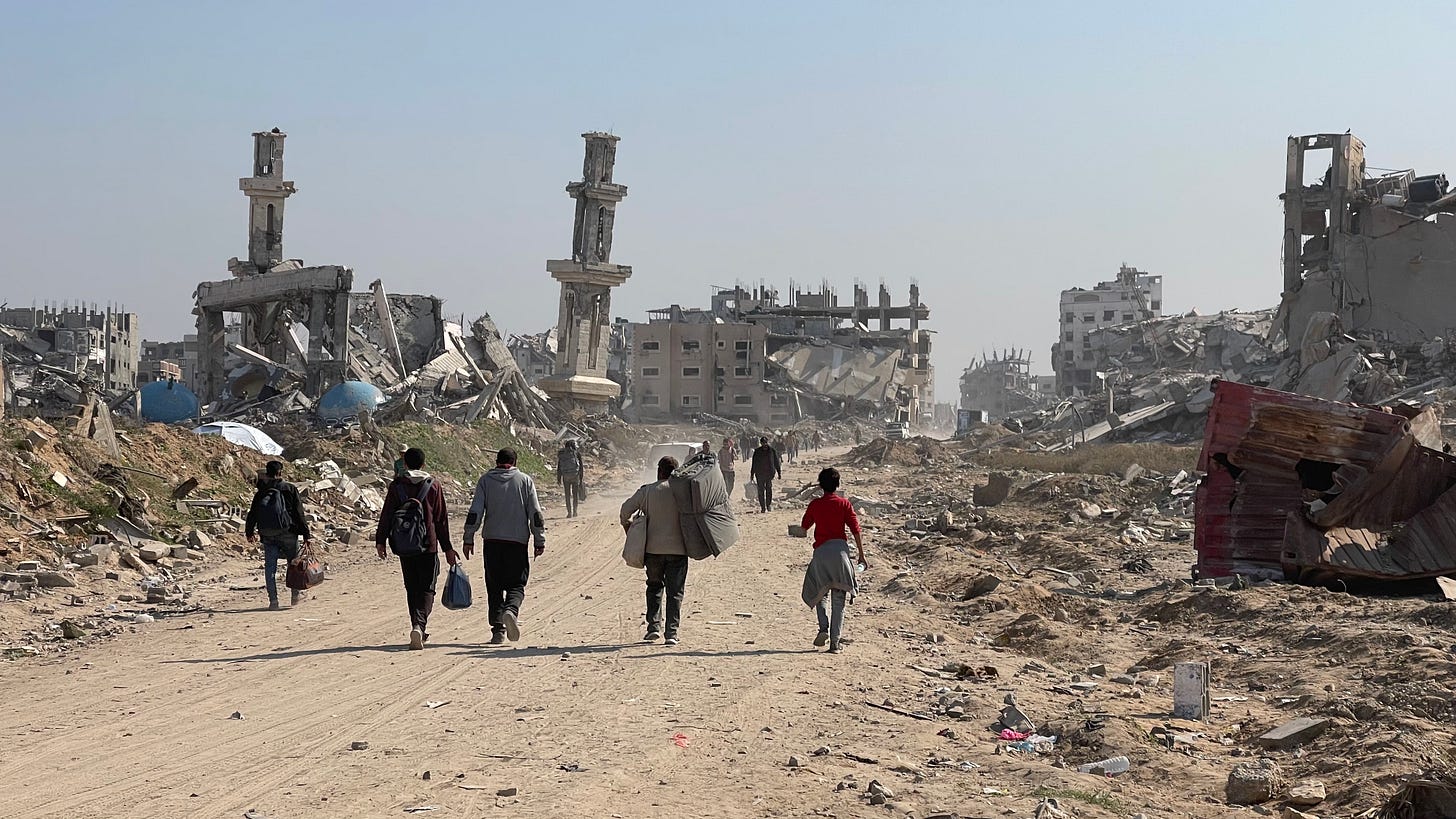Gaza Faces Catastrophic Hunger Crisis as UN Warns One Third Haven't Eaten for Days
International Calls for Sustained Aid Access
The United Nations' top humanitarian official warned Sunday of an "unbearable" crisis in Gaza, where one in three people hasn't eaten "for days" and children are dying from malnutrition amid severe restrictions on aid deliveries. Tom Fletcher, Under-Secretary-General for Humanitarian Affairs and Emergency Relief Coordinator, called for urgent action to prevent famine and a catastrophic health crisis in the territory of 2.1 million Palestinians.
Fletcher's warning comes as Israel announced a one-week scale-up of humanitarian aid, including lifting customs barriers and easing movement restrictions. Initial reports indicated more than 100 truckloads of aid were collected from crossings to be transported into Gaza.
Desperate Hunger Reaches "New Levels"
The World Food Programme (WFP) reported that Gaza's food crisis has reached "new and astonishing levels of desperation," with nearly half a million people facing famine-like conditions. According to UN data, 470,000 people are experiencing catastrophic hunger, while the entire population faces acute food insecurity.
"People are dying from lack of humanitarian assistance every day, and we are seeing this escalate day by day," said Ross Smith, WFP director of emergency preparedness and response.
The statistics paint a dire picture of systematic starvation. Almost 100,000 women and children are suffering from severe acute malnutrition and require immediate treatment. Among deaths by starvation, 80 percent are children, according to UNICEF.
Malnutrition Deaths Surge in July
The World Health Organization documented a sharp rise in malnutrition-related deaths, with 63 of the year's 74 recorded deaths occurring in July alone. Twenty-four of those who died were children under five years old.
"This crisis is entirely preventable," WHO stated, citing the deliberate obstruction of aid for the mounting toll.
The organization warned that Gaza's four specialized malnutrition treatment centers are overwhelmed, running low on fuel and supplies while being staffed by exhausted health workers. Over 5,000 children received malnutrition treatment in July alone.
Aid Distribution Becomes Deadly Gamble
Obtaining food has become a life-threatening endeavor for Gaza residents. Since late May, more than 1,000 people have been killed and over 7,000 injured while trying to access humanitarian aid. The violence has intensified around centralized distribution points that replaced traditional aid delivery systems.
Recent deadly incidents underscore the dangerous conditions facing civilians seeking assistance. On Sunday, dozens of Palestinians were killed and injured while waiting to access food as a WFP convoy entered northern Gaza. Similar incidents have occurred repeatedly at Israeli-militarized distribution sites.
"People are being shot just trying to get food to feed their families," Fletcher emphasized in his statement.
The Council on American-Islamic Relations has condemned Israeli aid distribution sites as "killing zones," characterizing them as part of what the organization terms a "forced starvation campaign".
International Pressure Mounts for Sustained Access
Western allies have increased pressure on Israel to lift restrictions on aid flow. Germany, France, and the United Kingdom issued a joint statement Friday urging Israel to "immediately lift barriers on the flow of aid" and fulfill its responsibilities under international humanitarian law.
"Withholding crucial humanitarian aid from the civilian population is unacceptable," the European nations declared.
Fletcher welcomed Israel's announced humanitarian pauses but stressed they fall short of what's needed. He called for sustained action, including quicker convoy clearances, multiple daily trips to crossings, consistent fuel supplies, and safe humanitarian corridors free from attacks.
Critical Medical System Collapse
Gaza's healthcare infrastructure has crumbled under the sustained crisis. The Red Cross field hospital has treated more than 2,200 patients with weapon wounds since May, exceeding the total for the entire 2024 year. Medical facilities struggle with shortages of antibiotics, gauze, and surgical tools.
"The health system is on the brink," WHO warned, as disease spreads rapidly through communities lacking clean water or sanitation.
Extended Blockade Deepens Crisis
The current emergency stems from an 11-week Israeli blockade of aid delivery that ended in late May 2025. All aid was blocked from entering Gaza starting March 2, reversing humanitarian gains seen during an earlier ceasefire.
Since the conflict began in October 2023, at least 55,637 Palestinians have been killed and 129,880 injured. The Israeli military offensive has destroyed 70 percent of crop fields and decimated livelihoods.
Despite having more than 116,000 metric tons of food assistance - enough to feed 1 million people for four months - ready outside Gaza's borders, WFP has only been able to bring in small amounts since aid resumed.
Economic Devastation Compounds Hunger
The blockade has created severe economic distortions, with basic commodities reaching astronomical prices. A 25-kilogram sack of wheat flour now costs between $235 and $520, representing a 3,000 percent price increase since February.
The Integrated Food Security Phase Classification estimates that one in five people in Gaza faces starvation, with experts warning that "goods indispensable for people's survival are either depleted or expected to run out in the coming weeks".
Calls for Permanent Ceasefire Intensify
Fletcher and other UN officials emphasized that temporary humanitarian pauses cannot address the scale of the crisis facing Gaza's population.
"Ultimately of course we don't just need a pause – we need a permanent ceasefire," Fletcher stated.
The UN Emergency Relief Coordinator stressed that international humanitarian law must be respected, with aid delivery protected from delays, blockades, and attacks. He also reiterated calls for the immediate and unconditional release of all hostages.
As Gaza enters its 21st month of conflict, the humanitarian situation continues deteriorating despite international warnings and pledges of increased aid. The stark reality remains that for 2.1 million Palestinians, accessing basic nutrition has become a potentially fatal endeavor, with children bearing the heaviest burden of a crisis that UN officials describe as entirely preventable.



